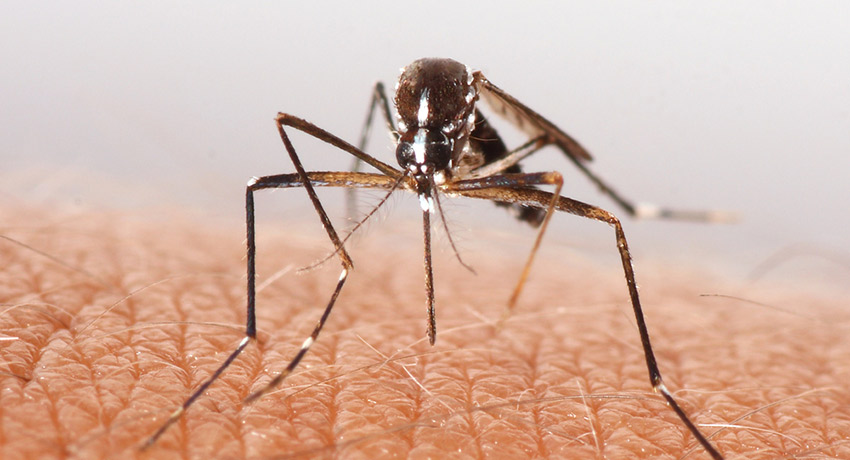State Finds First EEE-Positive Mosquitoes of the Season

Mosquito image via Shutterstock.
The Mass. Department of Public Health (DPH) says that Eastern Equine Encephalitis (EEE) has been detected in mosquitoes in Massachusetts for the first time this year. The mosquitoes were found in Western Mass. but that is still a concern for those of us in Eastern Mass. Last summer, both EEE and West Nile virus (WNV) were found in our area.
“Today is our first reminder that EEE is an annual occurrence in Massachusetts,” says DPH State Public Health Veterinarian Dr. Catherine Brown in a press release. “We had EEE activity last year in several places outside of our historic southeastern Massachusetts hot spot and this finding indicates that last year’s experience might not have been an isolated occurrence. Risks from mosquitoes can occur throughout Massachusetts and this is a reminder for everyone across the Commonwealth to protect themselves.”
Dr. Asim Ahmed from the Division of Infectious Diseases at Boston Children’s Hospital says that both WNV and EEE are transmitted by mosquitoes and can cause overlapping types of diseases, such as encephalitis or brain infection, so they often get lumped together. “The major difference between EEE and WNV is that EEE is much more severe—30 to 50 percent mortality rate,” he says. “WNV tends to be more virulent in older individuals. This is likely related to generally weaker immune systems in older people. EEE effects both adults and children.”
The DPH stresses that there have not been any human cases of WNV or EEE so far this year. There were seven cases of EEE found in Mass. residents last year. The DPH put out some tips to prevent EEE and WNV exposure:
To avoid Mosquito bites, apply Insect Repellent when Outdoors. Use a repellent with DEET (N, N-diethyl-m-toluamide), permethrin, picaridin (KBR 3023), oil of lemon eucalyptus [p-methane 3, 8-diol (PMD)] or IR3535 according to the instructions on the product label. DEET products should not be used on infants under two months of age and should be used in concentrations of 30% or less on older children. Oil of lemon eucalyptus should not be used on children under three years of age.
- Be Aware of Peak Mosquito Hours. The hours from dusk to dawn are peak biting times for many mosquitoes. Consider rescheduling outdoor activities that occur during evening or early morning.
- Clothing Can Help Reduce Mosquito Bites. Wearing long-sleeves, long pants and socks when outdoors will help keep mosquitoes away from your skin.
- Mosquito-Proof Your Home. Drain Standing Water. Mosquitoes lay their eggs in standing water. Limit the number of places around your home for mosquitoes to breed by either draining or discarding items that hold water. Check rain gutters and drains. Empty any unused flowerpots and wading pools, and change water in birdbaths frequently.


